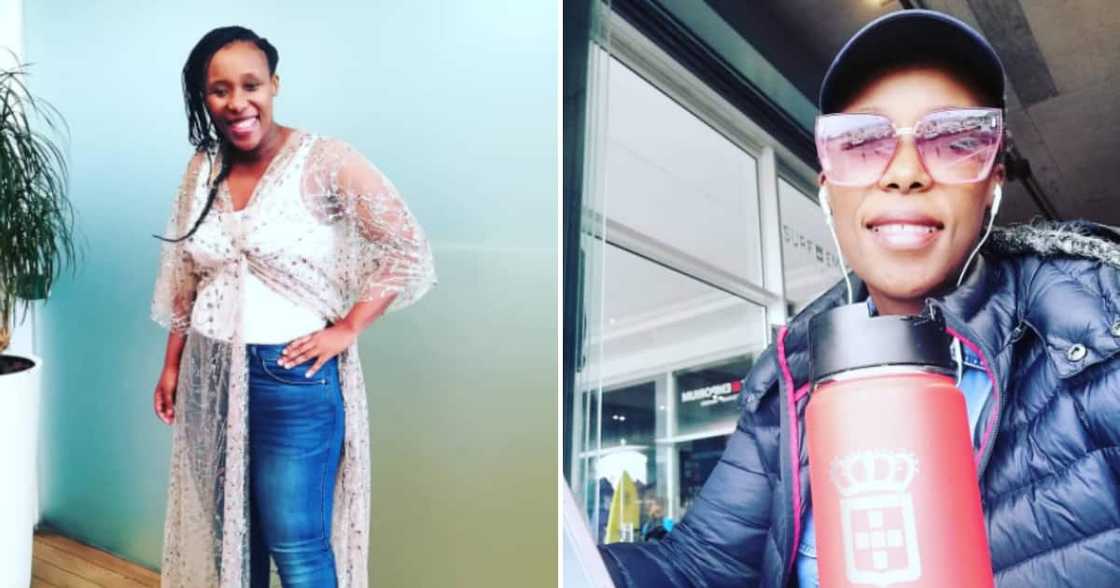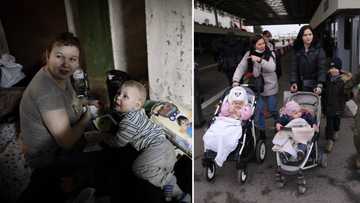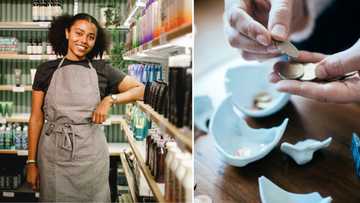'Kasi Katalyst’s Vusi Vokwana on Women Entrepreneurs Being the Answer to Economic Stability in South Africa
- Vusi Vokwana, the Director of Kasi Katalyst, gave Briefly News some of her time to shed light on female entrepreneurs in SA
- The inspiring woman believes women could be the answer to economic stability in SA and that their worth needs to be seen
- Vusi wants the South African government to step up and provide these women with the assistance they need to make a lasting impact
PAY ATTENTION: Click “See First” under the “Following” tab to see Briefly News on your News Feed!
Apparently, women are the answer to creating economic stability, especially in Third World countries like South Africa. If this is true, then why are women not being prioritised?

Source: Instagram
According to the latest Mastercard Index of Women Entrepreneurs report (with the latest due this March), only 19.4% of the businesses in South Africa are owned by women - a significantly lower percentage compared to African states like Uganda, Botswana and Ghana, who ranked the highest on the list. It goes without saying that women-led businesses in South Africa need our attention and support.

Read also
SA business women are rising: Mastercard Index of Women Entrepreneurs shows great progress despite challenges
Briefly News had the opportunity of speaking to Vusi Vokwana, the Director of Kasi Katalyst, an operation that changes perceptions of the township and is committed to keeping township money in the townships.
PAY ATTENTION: Never miss breaking news – join Briefly News' Telegram channel!
Vusi strongly believes that businesswomen are the answer and there is extensive research to back this up. When asking her why this is, the inspiring woman explained that women are natural peacemakers and solution-finders.
While men have privately been the ones to go out and “bring home the bacon”, be it in terms of hunting for food or working a job for a wage, it was always the women who made it work and made plans when what the men brought home was not enough.
“These women are the ones who learned how to plant and sell fresh produce, then sell livestock (nurture, feed, market, and price) to make ends meet. They managed all this with the least education available.
“These are the women who raised us, these women were creating stability during the harshest time in our history. It's our turn, the third generation, to rebuild our family structures. We can only do that by empowering both men and women through the anchor of the home, the woman.”

Read also
“Stay strong like our mothers during apartheid”: Mzansi women show support to Ukrainian mothers and children
In South Africa, according to research by Development Economics, women-owned businesses established between 2018 and this year may generate about R175 billion a year and create close to one million jobs. The World Bank also reports that women are critical for job creation.
What South African Government can do to help women become business owners?
Vusi knows the struggles that women face when trying to start their businesses. Aside from having little formal education, these women have also often never even owned a bank account of their own.
When Briefly News asked Vusi what she believes the SA government can do to help, this is what she said:
“I work exclusively in underserved communities. In my context, the government is invisible. We have huge infrastructure setbacks that make starting or maintaining a small business impossible. The saddest part is that our black government (nationally) acts as if they don't know the apartheid legacies we have in our communities.
"In the WC, we don't get enough representation in the spaces where decision-makers are. They don't engage with us enough. The sad reality about SA is that white people have NO idea what township life is like so they cannot fathom the difficulties we face. Daily. Because we have been taught to accept this as our reality by the system, we don't complain either.

Read also
Things are looking up for female entrepreneurs in Mzansi: Financial sector regulator wants red tape cut
"We simply do what black people have been doing for hundreds of years, we find a get-around. White people call it corruption and then they walk away. They don't understand that 'corruption' is the flip side of the privilege coin.”
Vusi believes that the SA government does not see the value women possess and that this needs to change. Women could be the answer to economic stability in SA and they need assistance.
“The government needs to shed its unconscious bias and realize that market opportunities don't have to look the same. What works in the urban market may not work in the underserved market. They need to ask people who have recently walked that road, not retirees who were the last township entrepreneurs during oppression. The landscape has changed and it needs actual agility, not muscle memory. #NothingForUsWithoutUs”
“Bringing a difference”: Meet Anna Karina de Sousa, an inspiring businesswoman making money with a purpose
In related news, Briefly News reported that while it might not seem like a big deal to own a nail salon, Anna Karina de Sousa’s journey is inspiring as it's filled with purpose.
Anna is the founder of Executive Nails in Mozambique, a luxury nail salon that offers a service that was never seen in Mozam before.
Coming from a family that preached work ethic and encouraged individualism, Anna was motivated to make her mark. While she studied Linguistics and Literature at the Faculty of Letters at Eduardo Mondlane University, Anna had a burning desire to do more.
Source: Briefly News


